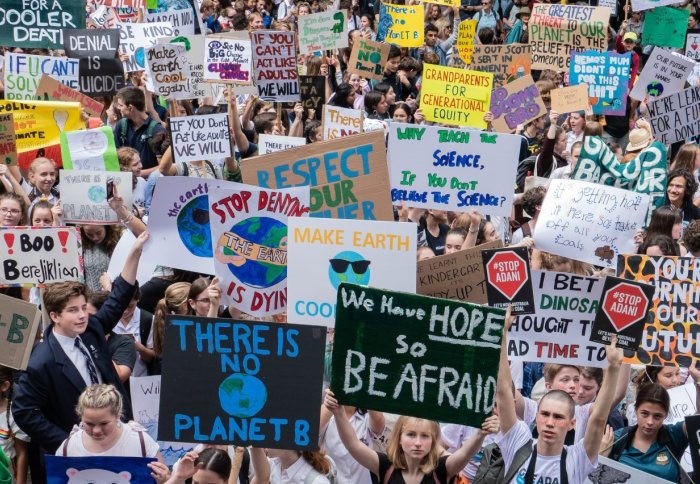Shifting the focus of climate-change strategies may benefit younger generations

Strategies to limit climate change that focus on warming in the next couple of decades would leave less of a burden for future generations.
Research led by Imperial College London and the International Institute for Applied Systems Analysis (IIASA), Austria, suggests a new underpinning logic for strategies that seek to limit climate change. Their new proposal is published today in Nature.
Turning the focus from the far future to the next decades, where push will come to shove in terms of adequate climate action, will help us reach the Paris Agreement goals without placing undue burden on future generations. Dr Joeri Rogelj
Most strategies seek to limit climate change by the year 2100. The strategies may include tactics such as deployment of new renewable technologies, removing carbon from the atmosphere (through planting trees or new technologies), or mandating energy efficiency targets.
However, by focusing on the year 2100, these strategies are inconsistent with the Paris Agreement climate goal – to keep warming below 2°C, and ideally below 1.5°C, at any time in the future.
Strategies that focus on the year 2100 could allow potentially dangerous warming to happen in the short term – in the next couple of decades – and then rely on removing carbon dioxide from the atmosphere in later decades to reach the overall targets by 2100.
These strategies place a burden of both higher climate risk and necessary investment on later generations, and also rely on carbon removal technologies being widely available, which is in no way certain and thus a risky approach.
More sensible, and fairer
Instead, the team suggests climate change strategies should consider when maximum warming will occur, what that level of warming should be, and whether warming is stabilised afterwards, or efforts are made to slowly reverse it.
The researchers suggest it is more sensible, and fairer, to limit warming faster before 2050 and rely less on unproven technologies and investment by future generations – or at least make these intergenerational value judgments explicit when designing climate change strategies.
Lead researcher Dr Joeri Rogelj, from the Grantham Institute at Imperial and the IIASA, said: “When climate-change strategies were first proposed, more than 20 years ago, the planet had only warmed about 0.5°C, so there was time for a long, smooth transition to energy systems and economies that kept warming below 2°C by 2100.
“Now, however, we are at around 1°C warming and science of the last decade has shown that 2°C cannot be considered a safe limit. The need to stabilise warming more quickly is paramount, and therefore we suggest a focus on reaching net zero carbon emissions as a key milestone of any climate strategy.
“Turning the focus from the far future to the next decades, where push will come to shove in terms of adequate climate action, will help us reach the Paris Agreement goals without placing undue burden on future generations.”
Focusing on net zero
Net zero carbon emissions is when a region (such as a city or country) balances the carbon they emit with the carbon they remove – often by methods such as by planting trees or deploying technologies that capture and store carbon underground.
The research team suggests this benchmark should be the focus of climate change efforts in the short term, to limit warming that occurs in the next couple of decades and until it is stabilised.
From net zero carbon, countries could then decide their strategy based on how much they need to further reduce their global warming contributions through added carbon removal.
Dr Rogelj said: “Shifting the focus to more short-term warming will underpin the next assessments by the Intergovernmental Panel on Climate Change (IPCC), and we hope it will also help policymakers formulate realistic strategies.
“Policymakers want to know how and when we can reach net zero carbon, and our new logic for strategies could make these questions answerable.”
-
'A new scenario logic for the Paris Agreement long-term temperature goal’ by Joeri Rogelj, Daniel Huppmann, Volker Krey, Keywan Riahi, Leon Clarke, Matthew Gidden, Zebedee Nicholls & Malte Meinshausen is published in Nature.
Article text (excluding photos or graphics) © Imperial College London.
Photos and graphics subject to third party copyright used with permission or © Imperial College London.
Reporter
Hayley Dunning
Communications Division